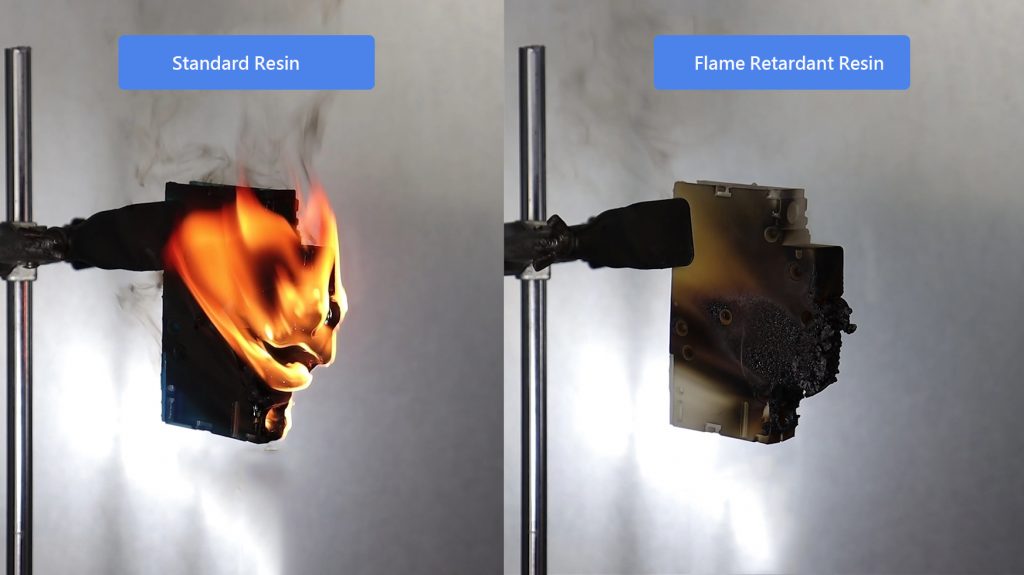Introduction
In modern industries where safety and performance are critical, flame retardant resins play an essential role. Whether it’s in electronics, automotive, construction, or aerospace, preventing the spread of fire can save lives and protect valuable assets. Flame retardant resin is a specially formulated polymer material designed to inhibit or delay combustion, offering both structural performance and fire protection.
What Is Flame Retardant Resin?
A flame retardant resin is a polymer material that either contains inherently flame-resistant chemical structures, or is modified with flame retardant additives. These resins can self-extinguish, reduce smoke, or form a char layer to slow down the burning process.
They are used in:
- Thermosetting resins like epoxy, vinyl ester, and unsaturated polyester
- Thermoplastic resins such as polycarbonate, ABS, and polyamide
Flame retardant behavior is achieved by either:
- Adding flame retardant agents (e.g. halogenated, phosphorus-based, or mineral fillers)Using inherently
- flame-retardant monomers in the resin formulation
Why Flame Retardant Resins Matter

Electronics: Circuit boards, cable coatings, and connectors
Automotive: Under-the-hood components, interior panels
Construction: Wall panels, pipe systems, insulation resins
Aerospace: Lightweight, high-performance fire-resistant composites
Public Safety: Trains, buses, public buildings—all must meet strict fire codes
By slowing ignition and suppressing flame propagation, these resins buy critical time for evacuation and firefighting.
Common Types of Flame Retardant Resins
1. Halogenated Flame Retardant Resins
- Contain chlorine or bromine compounds
- Highly effective in flame suppression
- But may release toxic gases and smoke when burned
2. Halogen-Free Flame Retardant Resins
- Use phosphorus, nitrogen, aluminum hydroxide, or magnesium hydroxide
- More environmentally friendly and lower smoke emission
- Increasingly popular due to green regulations (e.g., RoHS, REACH)
3. Inherently Flame-Resistant Resins
- Certain resins like phenolic, bismaleimide, or polyimides are naturally resistant to fire
- Suitable for aerospace and high-performance sectors
Performance Standards and Testing
Flame retardant resins are tested using global standards, including:
- UL 94: Vertical and horizontal flame tests (e.g. V-0, V-1 ratings)
- LOI (Limiting Oxygen Index): Minimum oxygen concentration to sustain burning
- Glow Wire Test: Measures resistance to high-temperature ignition
Meeting these standards is critical for product safety certifications.
Trends and Environmental Considerations
With stricter environmental regulations and growing awareness, the market is shifting toward:
- Halogen-free formulations
- Low smoke, low toxicity (LSZH) materials
- Recyclable or bio-based flame retardant systems
These developments aim to balance fire safety, health safety, and sustainability.
Flame retardant resins are a vital material class that protects people, infrastructure, and sensitive systems from the devastating effects of fire. As technology advances, the demand for safer, greener, and more efficient flame retardant systems continues to grow.
At Zhongtritium, we provide a range of flame retardant resin systems, including halogen-free and phosphorus-modified unsaturated polyester and vinyl ester resins. With multiple high-capacity factories and a CNAS-certified R&D center, we support global customers in delivering fire-safe and performance-optimized solutions.
Contact us to discuss how we can support your flame retardant application needs.
